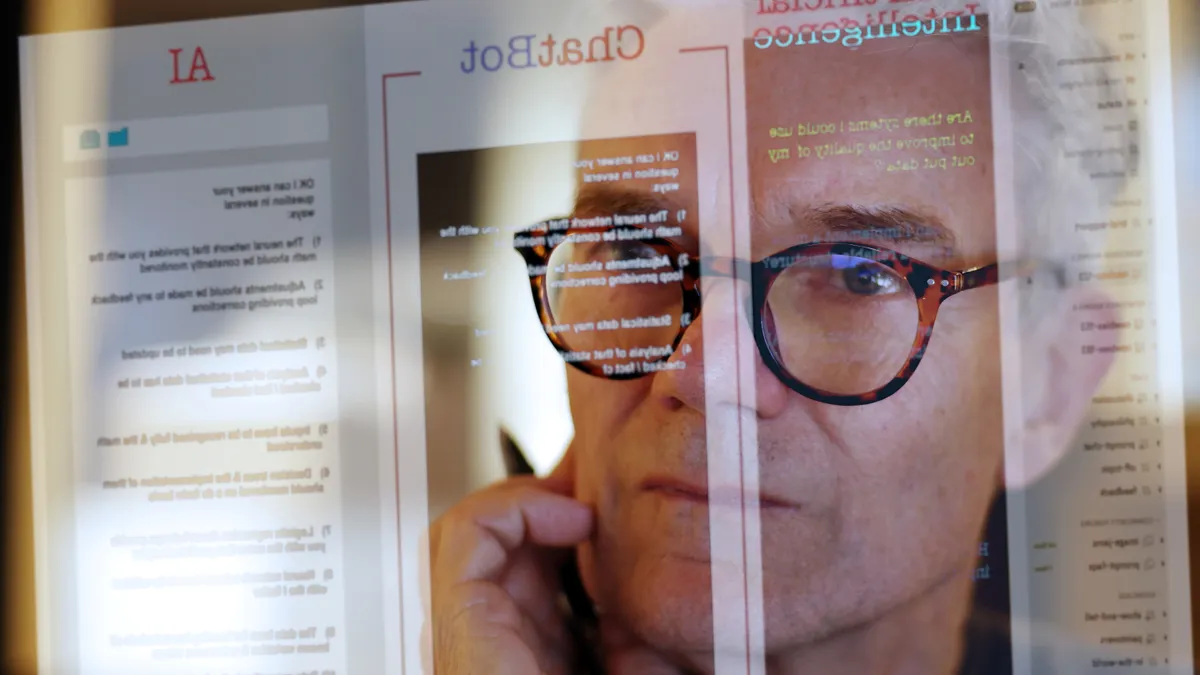Dive Brief:
- Workforce reskilling is one of the major organizational challenges business leaders face as they deploy generative AI, according to a new IBM Institute for Business Value report.
- Nearly 9 in 10 executives expect the new technology to augment, rather than replace, workforce, the report found. IBM surveyed 3,000 C-suite leaders and 21,000 workers globally in December and January for the report.
- Generative AI and accompanying technologies will necessitate largescale reskilling. More than half of executives surveyed estimate 2 in 5 of their workers will need to reskill due to AI and automation over the next three years.
Dive Insight:
If AI doesn’t eliminate jobs it will almost certainly change them, freeing workers from menial tasks to do more rewarding work.
Adoption of the new technology is expected to impact marketing, customer service, procurement, finance and risk and compliance most significantly, respondents said.
A shift to AI-assisted work is already underway in software development, where the automated coding capabilities of GitHub Copilot, AWS CodeWhisperer, Google Cloud Vertex AI and similar tools enable engineers to focus on higher value work.
As technology leaders explore the cost and compute needed to onboard these new technologies and broader concerns around generative AI adoption persist, executives are moving forward with pilot programs, according to analyst firm Gartner.
Proceeding cautiously with AI has its merits, IBM found. Organizations should emphasize developing enterprisewide skills with the new technology.
Companies that focus on reskilling reported significantly better revenue growth than other tech adopters and the value added is greater for organizations that emphasize AI skills, according to the report.
However, IBM found a disconnect between the perception of employees and their employers around technical proficiencies.
Only 21% of employee respondents reported lack of tech skills across their team as a daily challenge, while executives cited “technological illiteracy as their second greatest talent-related challenge — surpassed only by the need to build new skills.”
As organizations move to close skills and perception gaps, the jury is out on generative AI’s potential impacts on workers. While many experts predict the technology will level up work for most roles, replacing repetitive tasks with strategic ones, some research, including a Goldman Sachs April analysis, estimates that AI could replace up to one-quarter of current workers in the U.S. and Europe.














